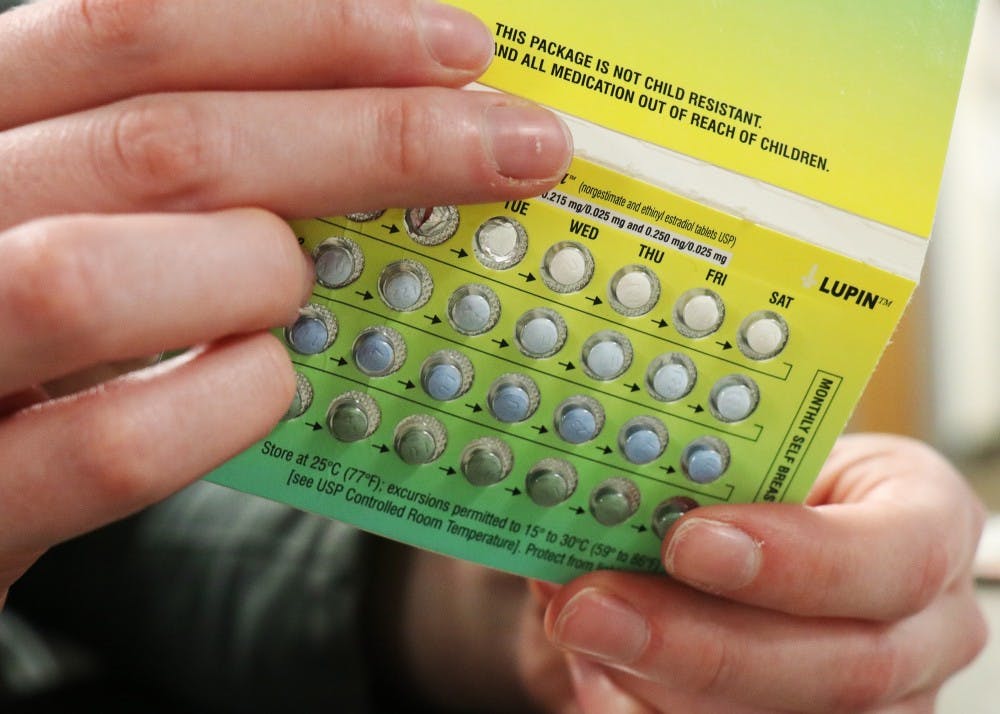When President Trump announced employers could receive a religious exemption to birth control coverage on health insurance plans, students and staff were left wondering what comes next.
Within a month of the decision, the University of Notre Dame announced it would stop covering birth control for employees and students. After just six days, Notre Dame reversed its decision. In a statement to employees, it claimed the reversal was to accommodate employees holding different beliefs.
This decision fits into the complicated history of birth control in the United States, according to Judith Allen, a history professor and a research fellow at The Kinsey Institute for Research in Sex, Gender and Reproduction.
The modern history began with the passage of the Comstock laws in 1873. These laws banned the transport of erotica, contraceptives and similar paraphernalia. With the turn of the century, these laws became unpopular.
“A lot of people, well-meaning doctors, social workers, journalists and intellectuals got involved in arguments against the Comstock laws,” she said.
These laws remain on the books into today, just without enforcement from the federal government.
A demographic shift occurred during the Great Depression as families stopped having as many kids and spacing them out.
“The conversation was about the overburdened working class mother or farm wife and how was the family to survive if she has to have six kids, seven kids,” she said.
This wasn’t a political debate like the ones today. According to Allen, it was focused on how a family is to support having so many kids, not over contraception.
“The Depression-era was the moment when people realized how broken down by excessive childbirth women were,” she said.
And then the birth control pill was approved the Food and Drug Administration in 1960.
“If females regain the possibility of controlling their own fertility then they are no longer under sort of the purview of the husband,” Lucia Guerra-Reyes, an assistant professor of applied health science at IU, said.
Prior to the pill, the only forms of birth control available were barrier contraceptives, like condoms. At the time, condoms were expensive and not as easily accessible as they are today.
“People call it a great liberation for women,” Allen said. “They didn't have to worry about being pregnant so they could explore their sexuality in the way men could.”
However, this did not come without pushback from leaders, especially those who sought to uphold what they saw as a moral standard.
“If you look at the debates at the time, it was a lot of talk about how this will make young women promiscuous, and the only thing holding them in check is the fear of unplanned pregnancy,” Allen said.
This is when the modern debate over birth control as a cultural issue began to take root.
“We are living in an era where we very much conceptualize everything to do with birth control as being about laws and rights and this party or that party, pro-life, pro-choice,” Allen said. “All of these dualisms are very recent.”
When Roe v. Wade guaranteed a right to abortion in 1973, the debate only continued.
“Roe v. Wade was a watershed moment that made it OK for us to talk about this as a human rights issue, as a right of women,” Guerra-Reyes said.
The debate continued for several decades until, in 2011, under the Patient Protection and Affordable Care Act, contraception was added to the list of preventative health services that did not require a copayment.
“It was only after ACA and the ACA mandates that all insurances cover birth control,” she said. “It really sort of became mainstream as the essential health benefits included reproductive care.”
However, just six years later, President Trump reversed this mandate if employers or insurers found covering birth control to go against religious or moral beliefs.
“I find it interesting how empty the conversation is of rhetorical justification. They simply say it's against our religious beliefs, well, what are those religious beliefs?” Allen said. “How come it was all right a month ago, what happened?”



